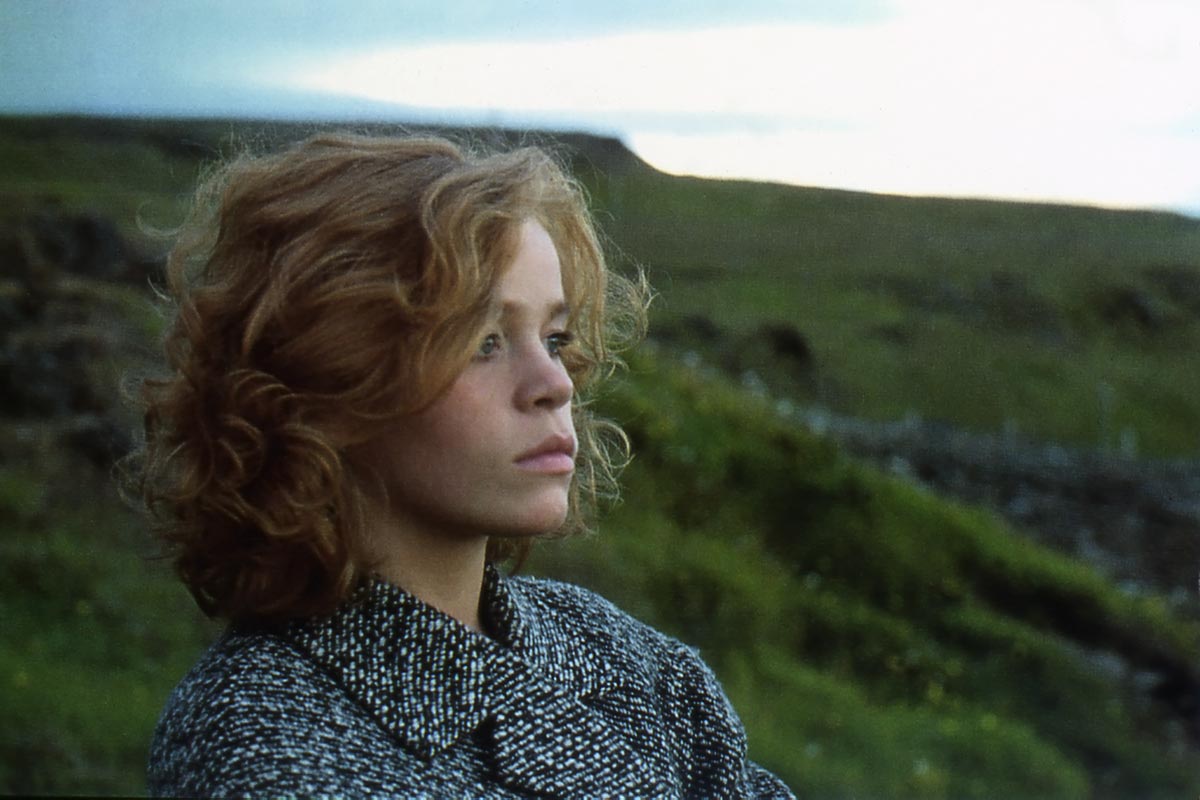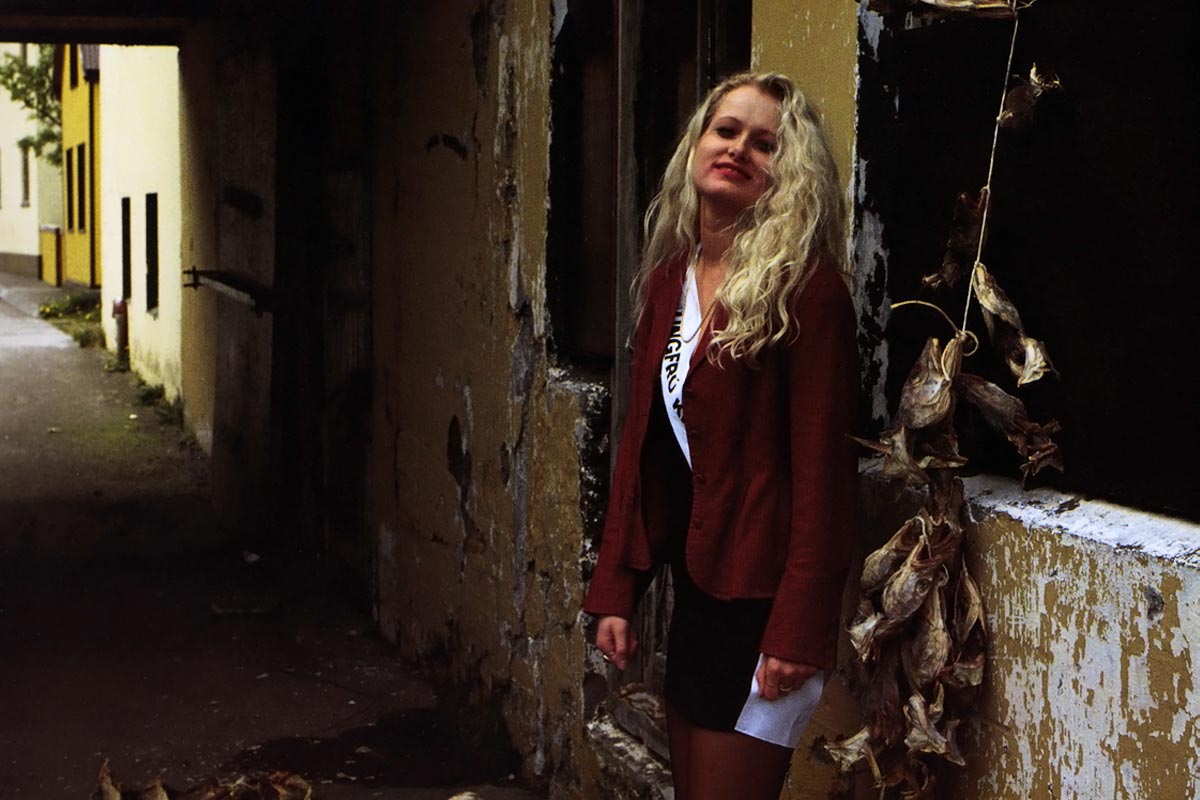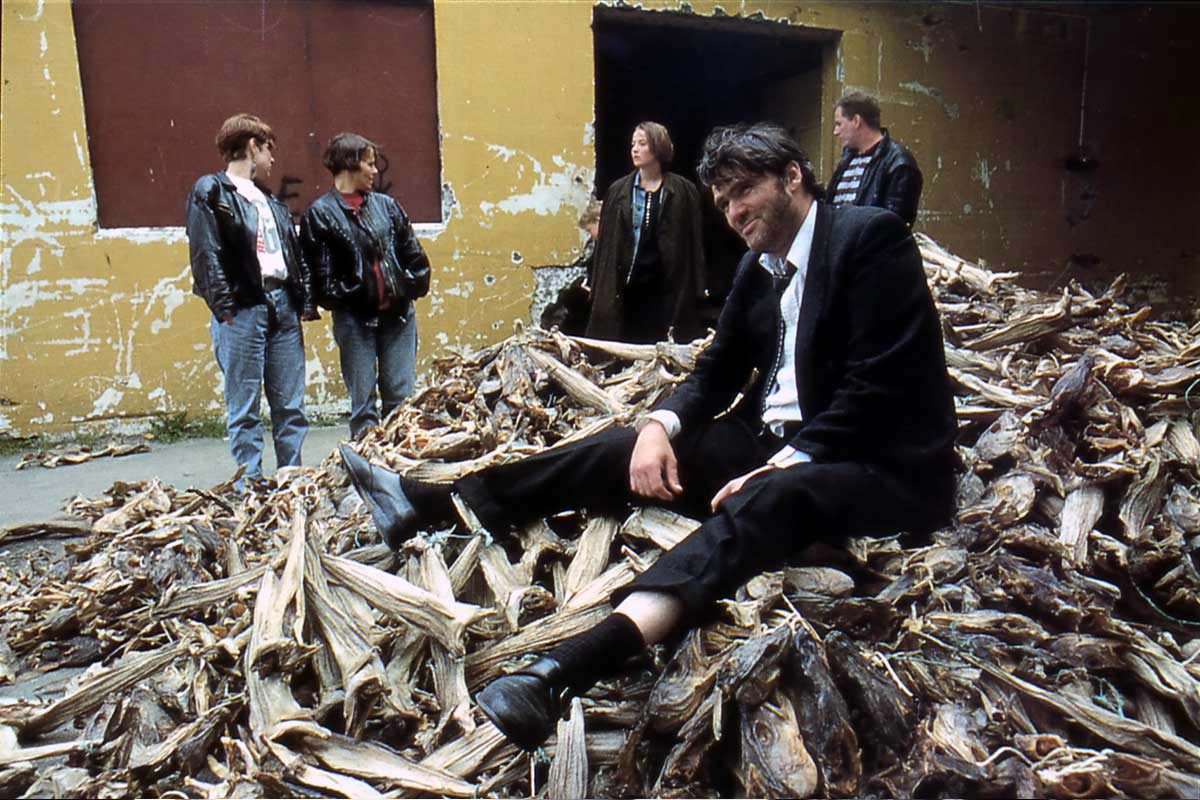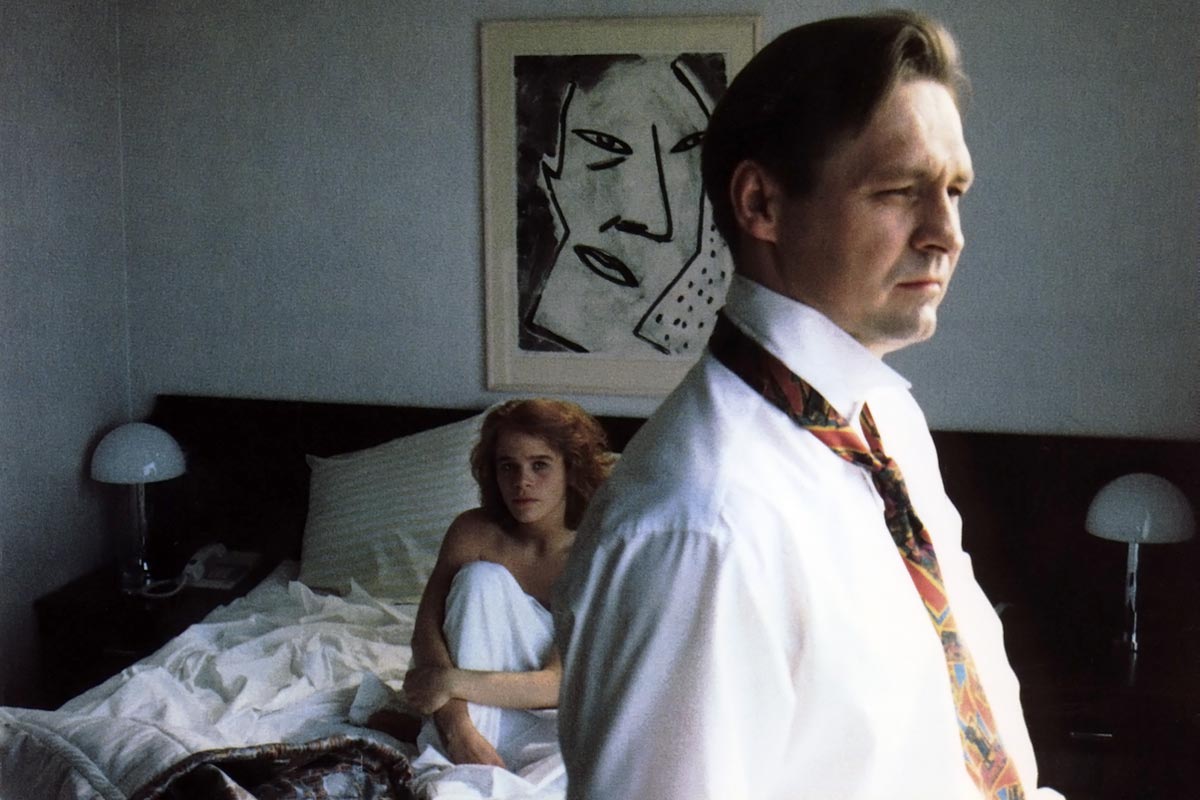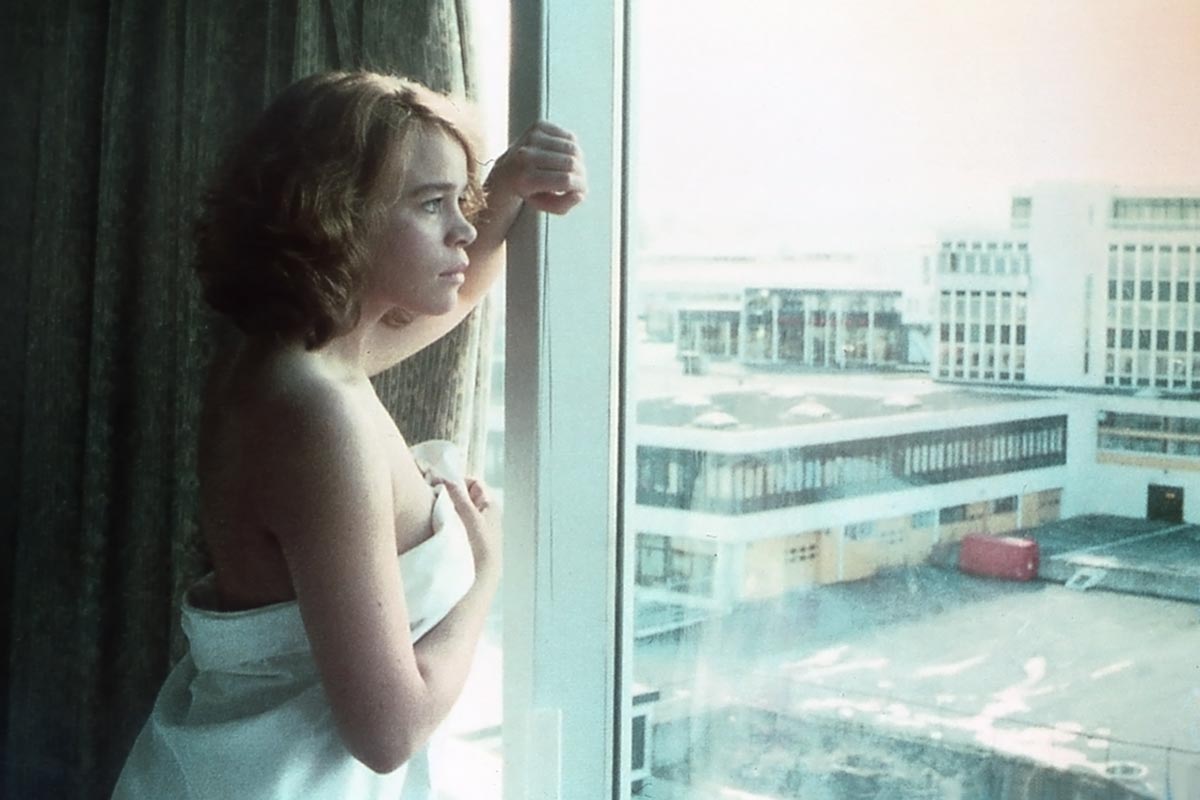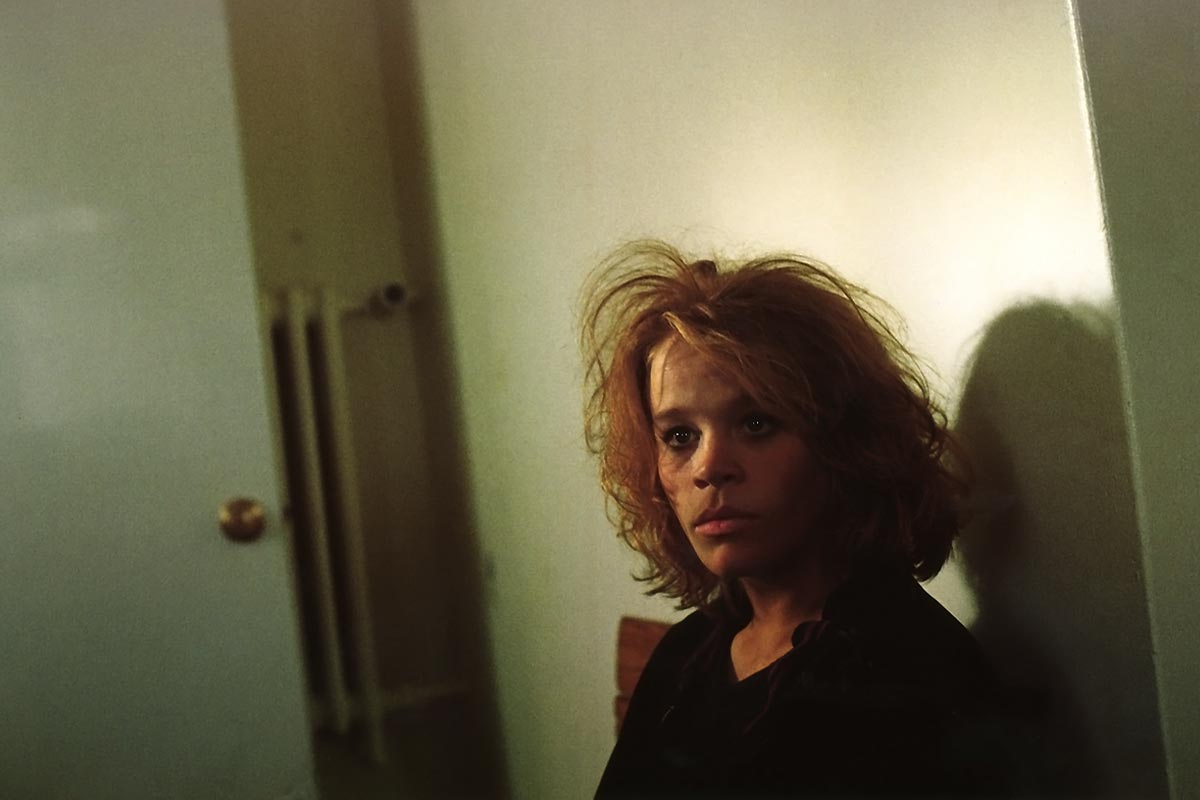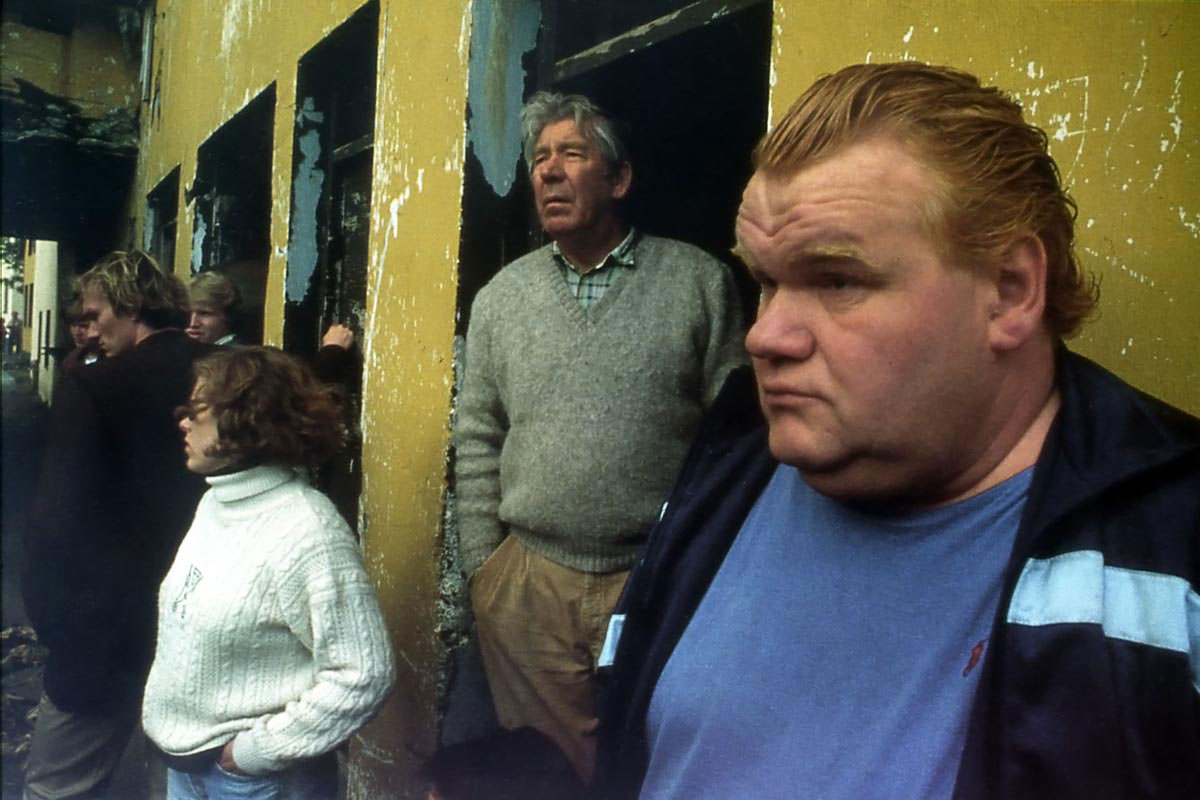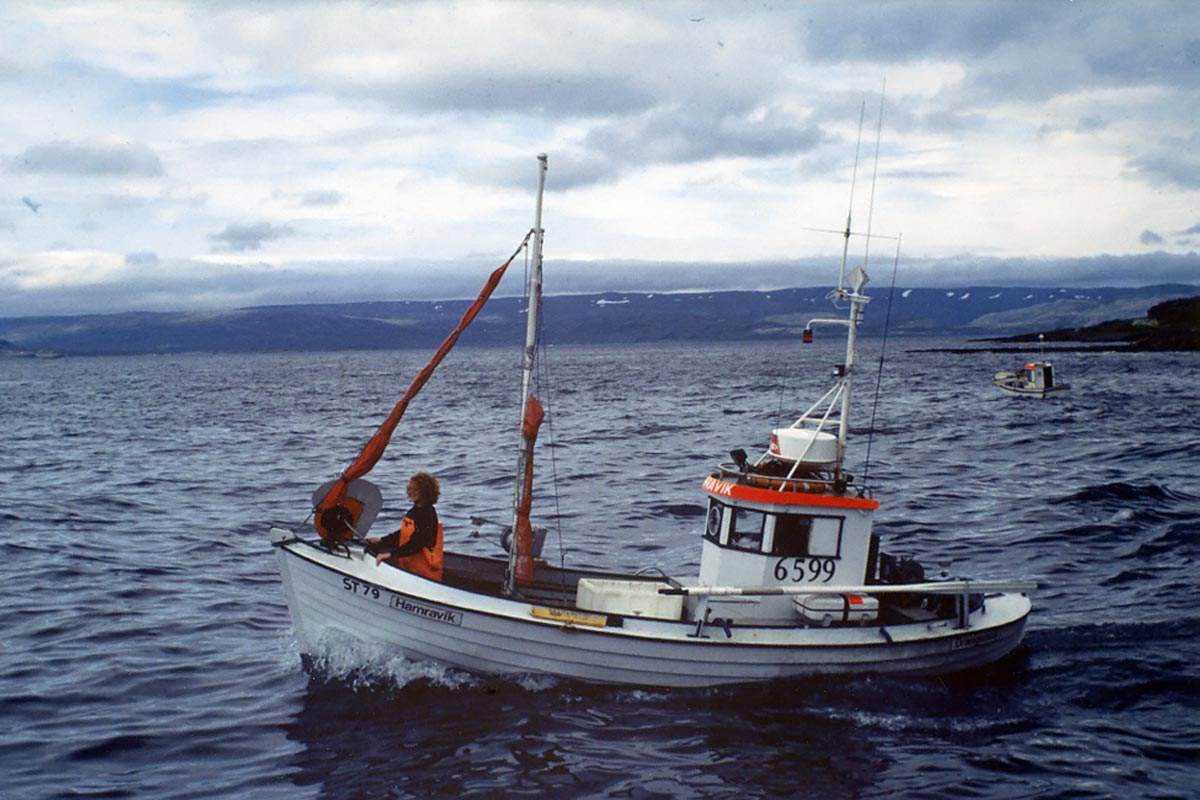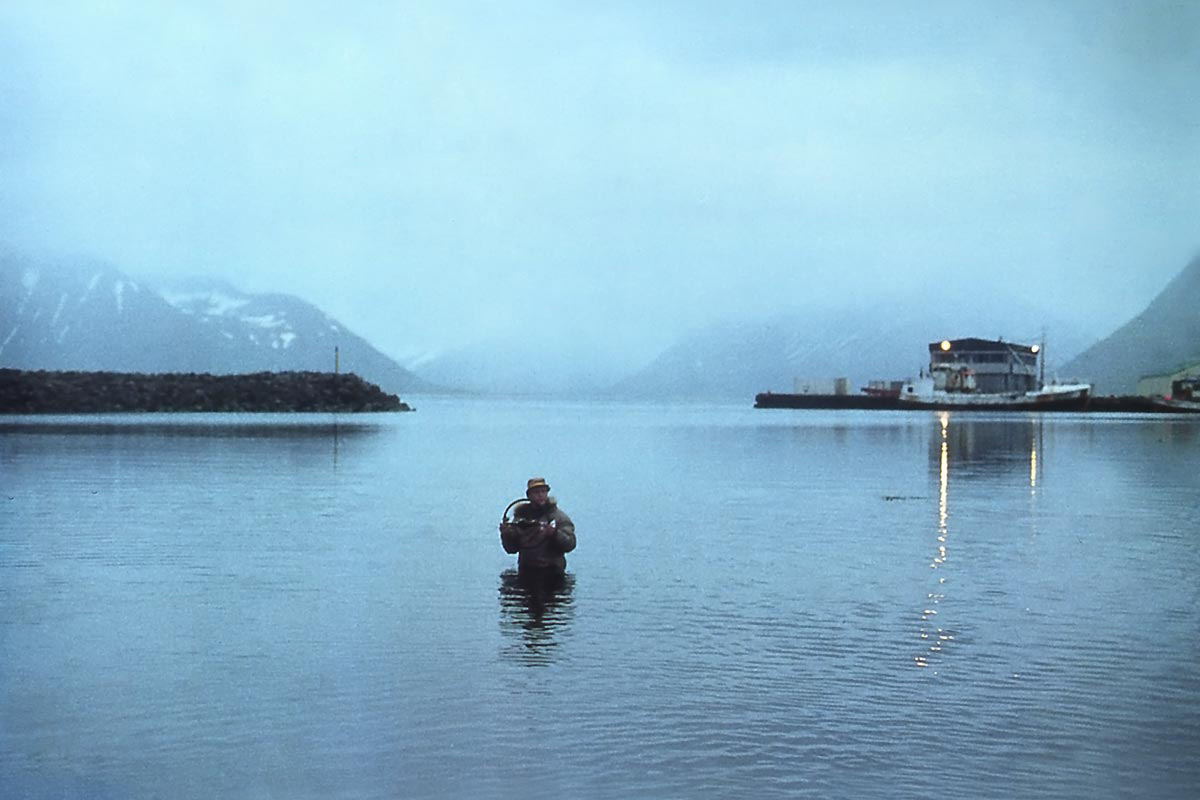
Synopsis
Lýsing
Ingaló is helping her father on his small fishing boat, but he's an obstinate character and relations between them are tense.
After a dance in the village which ends in a fight between the local people and crew og Matthildur ÍS 167, a visiting fishing boat, Ingaló and her younger brother leave home.
Ingaló stays briefly in Reykjavík and has a short affair with Vilhjálmur, a man in his thirties. Sveinn has found a job on Matthildur and Ingaló is taken on as a cook. The fishing is poor and when the vessel breaks down it heads for home port, where the crew stays in derelict living quarters for seasonal workers. Ingaló finds out that Matthildur's owner and big wheel in town is none other than Vilhjálmur.
Already mocked by the crew for being unable to cope with life at sea, Sveinn suffers absolute humiliation at the living quarters. Inagló is torn between her protective instincts towards Sveinn and her attraction towards Skúli, the chief engineer on Matthildur. But Skúli himself has plenty of other things on his mind, among them the new local beauty queen.
A wild party in the living quarters has dire consequences for Ingaló, Skúli and the rest of the workers. Shortly afterwards, Matthildur sets off on ist final, fateful voyage.
Ingaló er til sjós á trillu föður síns, en feðginin eiga ekki skap saman. Eftir ball í þorpinu sem endar í slagsmálum milli þorpsbúa og áhafnar á aðkomuskipinu Matthildi ÍS 167, er Ingaló send til Reykjavíkur, en yngri bróðir hennar Sveinn strýkur að heiman.
Í Reykjavík á Ingaló ástarævintýri með sér eldri manni, Vilhjálmi. Sveinn hafði komist í pláss á Matthildi og nú fær Ingaló pláss á bátnum sem kokkur. Illa fiskast og stímt er í land. Í heimahöfn búa flestir úr áhöfninni í verbúð sem eru léleg húsakynni. Ingaló kemst að því að eigandi Matthildar og „kóngurinn“ í þorpinu er enginn annar en Vilhjálmur.
Sveinn hafði átt bágt með að venjast dvölinni um borð og varð fyrir stríðni, en lendir í algjörri niðurlægingu í verbúðinni. Í Inguló togast á verndarhvöt gagnvart yngri bróður sínum og hlýjar tilfinningar í garð stýrimannsins Skúla. Skúli hefur þó annað í huga, til dæmis líst honum vel á nýkjörna fegurðardrottningu þorpsins.
Partí í verbúðinni verður afdrifaríkt fyrir Inguló og aðra verbúðarmenn. Skömmu síðar leggur Matthildur úr höfn í sína hinstu för ...
Cast
Leikarar
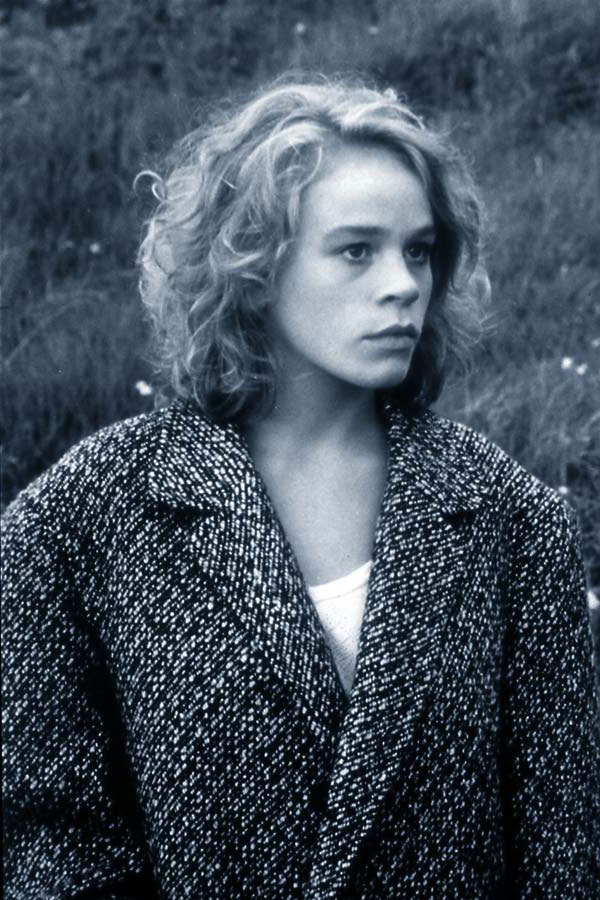
Ingaló: Sólveig Arnarsdóttir
Sveinn: Haraldur Hallgrímsson
Ragnar, Father: Þráinn Karlsson
Oddný, Mother: Guðný J. Helgadóttir
Factory Owner: Þorlákur Kristinsson
Kalli, Village Idiot: Þór Hrafnsson Tuliníus
Lára, Beauty Queen: Auður Þráinsdóttir
Rosy, Working Girl: Ása Hlín Svavarsdóttir
Ingaló: Sólveig Arnarsdóttir
Sveinn: Haraldur Hallgrímsson
Ragnar, faðir: Þráinn Karlsson
Oddný, móðir: Guðný J. Helgadóttir
Vilhjálmur útgerðarmaður: Þorlákur Kristinsson
Kalli, bróðir: Þór Hrafnsson Tuliníus
Lára, fegurðardrottning: Auður Þráinsdóttir
Rosy, verkakona: Ása Hlín Svavarsdóttir
Crew on Matthildur
Skúli: Ingvar Sigurðsson
Ásgeir the Maschinist: Eggert Þorleifsson
Thumper: Björn Karlsson
Sealy: Magnús Ólafsson
Gunnlaugur/Gulli: Bessi Bjarnason
Jónsi: Helgi Sverrisson
Hog: Stefán Jónsson
Clit: Björn Br. Björnsson
Captain: Jón Hjartarson
Áhöfnin á Matthildi ÍS 167
Skúli: Ingvar Sigurðsson
Ásgeir vélstjóri: Eggert Þorleifsson
Dynkur: Björn Karlsson
Seli: Magnús Ólafsson
Gunnlaugur/Gulli: Bessi Bjarnason
Jónsi: Helgi Sverrisson
Göltur: Stefán Jónsson
Óli snípur: Björn Br. Björnsson
Skipstjóri: Jón Hjartarson
Sigvaldi, Union Chef: Róbert Arnfinnsson
Psychiatrist: Bríet Héðinsdóttir
Doctor: Gísli Halldórsson
Police Sheriff: Guðmundur Ólafsson
Servant: Guðbjörg Thoroddsen
Doorman: Júlíus Brjánsson
Sigvaldi, verkalýðsforingi: Róbert Arnfinnsson
Geðlæknir: Bríet Héðinsdóttir
Héraðslæknir: Gísli Halldórsson
Lögreglustjóri: Guðmundur Ólafsson
Þjónn: Guðbjörg Thoroddsen
Húsvörður: Júlíus Brjánsson
Filmmakers
Teymi
Information and sales: Gjóla films ehf.
Director: Ásdís Thoroddsen
Screenplay: Ásdís Thoroddsen
Producer: Martin Schlüter
Co-Producers: Albert Kitzler, Heikki Takkinen
Production Company: Gjóla Films ehf(Iceland), Trans-Film GmbH(Germany), Filminor Oy(Finland)
Production Manager: Hlynur Óskarsson
Director of Cinematography: Tahvo Hirvonen
Composer: Christoph Oertel
Art Direction: Anna Th. Rögnvaldsdóttir
Editor: Valdís Óskarsdóttir
Upplýsingar og dreifing: Gjóla ehf.
Leikstjóri: Ásdís Thoroddsen
Handrit: Ásdís Thoroddsen
Framleiðandi: Martin Schlüter
Samframleiðendur: Albert Kitzler, Heikki Takkinen
Framleiðslufyrirtæki: Gjóla ehf(Ísland), Trans-Film GmbH(Þýskaland), Filminor Oy(Finnland)
Framkvæmdastjóri: Hlynur Óskarsson
Kvikmyndatökumaður: Tahvo Hirvonen
Tónskáld: Christoph Oertel
Leikmyndahönnuður: Anna Th. Rögnvaldsdóttir
Klippari: Valdís Óskarsdóttir
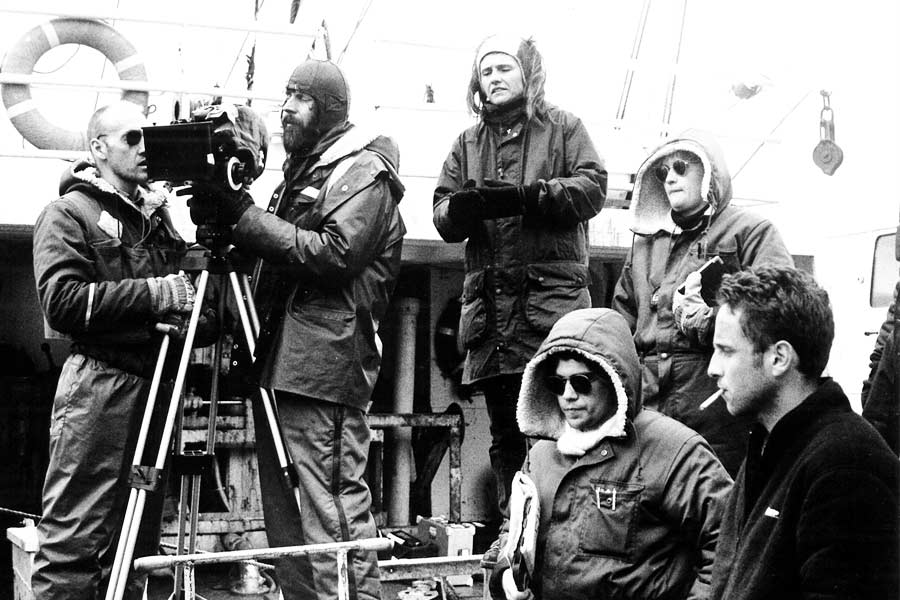
Title: INGALÓ
English Title: INGALO
Genre: Drama
Release Date: February 1992
Film Format: 35 mm, colour
Aspect Ratio: 16:9
Sound Format: Dolby 2.0
Running Time: 96 min.
Language of Dialogue: Icelandic
Titill: INGALÓ
Enskur titill: INGALO
Tegund: Leikin kvikmynd
Frumsýning: Febrúar 1992
Form: 35 mm, í lit
Hlutfall myndar: 16:9
Hljóðsnið: Dolby 2.0
Lengd: 96 mín.
Tungumál: Íslenska
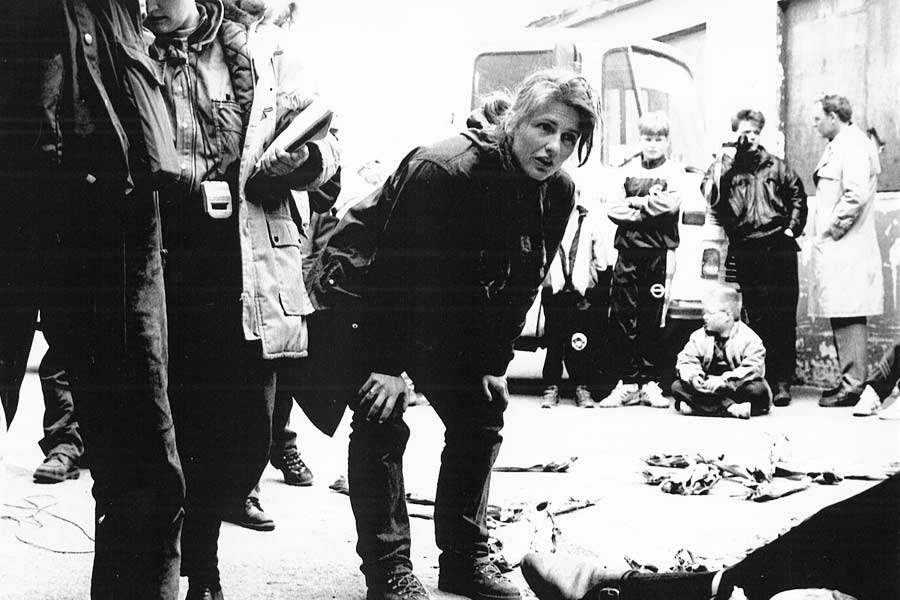
Festivals
Hátíðir
1992
CANNES - Semaine de la critique, France
RIVERTOWN, U.S.A.
GIJON, Spain
CAMBRIDGE, England
MONTREAL - Festival des Filmes du Monde, Canada
HOF, Germany
LÜBECK- Nordische Filmtage, Germany
SAN JUAN, Costa Rica
1993
MAMERS, France
TROMSÖ, Norway
NEW -DEHLI, India
STOKKHOLM, Sweden
ROTTERDAM, Holland
1992
CANNES - Semaine de la critique, Frakklandi
RIVERTOWN, B.N.A.
GIJON, Spáni
CAMBRIDGE, Englandi
MONTREAL - Festival des Filmes du Monde, Kanada
HOF, Þýskalandi
LÜBECK- Nordische Filmtage, Þýskalandi
SAN JUAN, Kosta Ríka
1993
MAMERS, Frakklandi
TROMSÖ, Noregi
NEW -DEHLI, Indlandi
STOKKHOLM, Svíþjóð
ROTTERDAM, Holland
GOTHENBURG, Sweden
DUBLIN, Ireland
SIDNEY, Australia
ROUEN - Festival nordique, France
DORTMUND - Femme totale, Germany
ALÈS-EN-CÉVENNES, France
REYKJAVÍK, Norræna kvikmyndahátíðin, Iceland
NEW-YORK, New Films New Directors - Museum of Modern Art, U.S.A.
LA ROCHELLE, France
SAN FRANCISCO, U.S.A.
STUTTGART - Naturfilmfestival, Germany
TROIA, Portugal
SAN REMO, Italy
UMEÅ, Sweden
2001
DRESDEN, Germany
GOTHENBURG, Svíþjóð
DUBLIN, Írlandi
SIDNEY, Ástralíu
ROUEN - Festival nordique, Frakklandi
DORTMUND - Femme totale, Þýskalandi
ALÈS-EN-CÉVENNES, Frakklandi
REYKJAVÍK, Norræna kvikmyndahátíðin, Íslandi
NEW-YORK, New Films New Directors - Museum of Modern Art, B.N.A.
LA ROCHELLE, Frakklandi
SAN FRANCISCO, B.N.A.
STUTTGART - Naturfilmfestival, Þýskalandi
TROIA, Portugal
SAN REMO, Ítalíu
UMEÅ, Svíþjóð
2001
DRESDEN, Þýskalandi
INGALÓ ON SHOWN IN CINEMATEQUES OR IN SPECIAL PROGRAMMES
(Not full list)
LYON, France
PARIS, France
BRITISH FILM INSTITUTE, London (many times)
BARBICAN CENTRE, London
CHICAGO, U.S.A.
BOSTON, U.S.A.
BARCELONA, Spain
THORSHAVN, FAEROE ISLANDS
BONN, Germany
TOULOUSE, France
VADUZ, Lichtenstein
MOSKVA, Goethe Institut, Russia
Filmfest Dresden 2001
Filmfest Hamburg, Icelandic retrospective, 2011
Images from the Edge: Classic and Contempory Films from Iceland, Lincoln Center, N.Y. 2012
Ultima Thule, various arthouses, Polen, 2016
PUBLISHING
Gjóla ehf, 1996 - VHS / 2007 - DVD / 2012 - DCP
Kvikmyndasöfn eða sér-dagskrár
(Ekki tæmandi listi)
LYON, Frakklandi
PARIS, Frakklandi
BRITISH FILM INSTITUTE, Lundúnum (margsinnis)
BARBICAN CENTRE, Lundúnum
CHICAGO, B.N.A
BOSTON, B.N.A
BARCELONA, Spáni
ÞÓRSHÖFN, Færeyjum
BONN, Þýskalandi
TOULOUSE, Frakklandi
VADUZ, Lichtenstein
MOSKVA, Goethe Institut, Rússlandi
Filmfest Dresden 2001
Filmfest Hamburg, Icelandic retrospective, 2011
Images from the Edge: Classic and Contempory Films from Iceland, Lincoln Center, N.Y. 2012
Ultima Thule, ýmsir sýningarstaðir, Pólland, 2016
Útgáfur
Gjóla ehf, 1996 - VHS / 2007 - DVD / 2012 - DCP
PRIZES
ROUEN: Best Picture, Best actress
SAN REMO: Best acting in female role
TROIA: Silver Dolphin for the best screenplay, best actress
OCIC: A prize
(Organisation catholique du cinema et de l'audiovisuel)
SALES
ICELAND, RÚV-Sjónvarp
FAEROE ISLANDS
GERMANY, ZDF (shown 2 times), 3SAT (once)
FRANCE/GERMANY, ARTE-Kanal
INDIA
SLOVENIA
BULGARY
FRANCE
CINEMA
ICELAND, shown around the country
FINLAND, shown in Helsinki
GERMANY, shown in all bigger towns
Verðlaun
RÚÐUBORG: Besta myndin, Besta leikkonan
SAN REMO: Besta leikkonan
TROIA: Silfurhöfrungur fyrir besta handritið, Silfurhöfrungur fyrir bestu leikkonuna
OCIC: Verðlaun
(Organisation catholique du cinema et de l'audiovisuel)
Sjónvarpssýningar
ÍSLAND, RÚV-Sjónvarp
FÆREYJAR, Kringvarp
ÞÝSKALAND, ZDF (tvisvar sinnum), 3SAT (einu sinni)
FRAKKLAND/ÞÝSKALAND, ARTE-Kanal
INDLAND
SLÓVENÍA
BÚLGARÍA
FRAKKLAND
Kvikmyndahússýningar
ÍSLANDI, sýnd hringinn í kringum landið
FINNLANDI, sýnd í Helsinki
ÞÝSKALANDI, sýnd í öllum stærri borgum
Voices from the press
Pressulof
…We live in good times. Helgi Hálfdanarson has presented us with all the works of Shakespeare and all the Greek tragedies; a respectable edition of Snorri Sturluson's Heimskringla has finally been published, and Ásdís Thoroddsen has completed her first film, Ingaló, where Icelandic reality, with a taste of salt, has finally made it to the big screen. Congratulations, Icelanders, and thanks to those who made Ingaló. Boat fishermen, fish processors on land, labour leaders, ship owners, the village idiot – you have finally jumped into Stjörnubíó Cinema, and there was art...
Ólafur H. Torfason, State Radio 2
9 February 1992
Ásdís Thoroddsen from Iceland has succeeded in making an incredibly beautiful premiere effort, Ingaló, which paints a moving portrait of social conditions in Iceland through the eyes of the young and rebellious main character. A fisherman's daughter, who does not accept her lot, fights with moving pride for a life that does not fit in with the will and expectations of a coarse, masculine community.
Few pictures (at the festival) were so merciless and beautiful."
Süddeutsche Zeitung, Germany
fall '92.
...Ingaló is both funny and dramatic... This mixture of humour and seriousness is dangerous and difficult to handle, but Ásdís succeeds surprisingly well in managing the story line and all the characters in the picture. Otherwise, the acting in Ingaló is really good, and the casting is especially well done. Whether rough fishermen and tough freezing plant girls or underhanded managing directors and labour leaders are involved. There is no reason to favour one or the other...
Hilmar Karlsson, Dagbladid Vísir
10 February 1992.
Slim but affecting, Ingaló reps an impressive feature debut by young Icelandic director Ásdís Thoroddsen. Moody, hard-edged portrait of smalltown Icelandic life and tensions recalls the earlier works of Brit Ken Loach in its mix of social realism and fiction... A subtle thread of Nordic humour glints in scenes in many places...
Derek Elley, Variety, United States
25 May 1992.
...It is not least the small details that open up this world for the viewer, comments or doings, small shots that make the characters vivid and normal along with wording that is appropriately coarse...
Arnaldur Indridason, Morgunbladid
11 February 1992.
,,...Not only does this girl withstand a bleak, masculine fisherman's world, but the director, in an episodic but continuous narrative, also resists the temptation of making too much out of the alien landscape and social life. This movie juxtaposes many elements: In order to illuminate the problems in a fishing village, Ásdís Thoroddsen has found the right form: straight-forward, but poetic, realism."
Kieler Nachrichten, Germany
fall '92.
"... magnificent: Sólveig Arnarsdóttir as Ingaló... Innovative, critical cinema that does not bluster forth, waving ideological flags – which is exactly why it is credible.
Hermann Hofe, Lübecker Nachrichten, Germany
fall '92.
...A beautiful, human film that is touching...
Thomas Thieringer, Frankfurter Rundschau
10 December 1992 .
…A well done and tough film, but plainly smells too much of herring to reach many. That is a shame.
Bill Chernaud, Libération
13 May 1992.
…Writings about motion pictures bear witness to a certain arrogance in mentioning the nationality of the pictures when they come from a country where cinematic art is not very developed. We nevertheless cannot avoid mentioning the origin of the film "Ingaló" because, on the pretext of being a realistic story, this picture is nearly a documentary about Iceland and fish processing, the main industry for Icelanders. The story of Ingaló, who is the young daughter of a fisherman, and her struggle to win a place for herself in a man's society and improve working conditions alongside her masculine workmates, is without doubt far from involving only the world of Iceland's fish processing people. For if the director had not identified with this world, the picture would hardly have been as interesting. Without this, neither simple, reliable direction nor the everyday fate of the main character would have made it so interesting. Thoroddsen has great control over time, which is the spine of classical, cinematic narrative, but her main virtue as a director is to speak directly from the heart about a country that she loves despite its hardship and various disadvantages. She is never as convincing as in the scenes showing airports, wretched country dances and fishing ships on the open sea, where everyday reality takes control of the actual storyline of the picture…
Ph.R., Positif
- Revue mensuelle de cinema - no 378 1992
"The Critics Week is now showing an Icelandic film, the premiere effort of a young woman, Ásdís Thoroddsen. This picture bears witness to the courage and unequivocal talent of this young director who delivers the story in an unassuming way. She travels roads not taken in her descriptions of the life of fishermen passing through a village, where the only source of income is the place's freezing plant. The picture portrays people's difficult struggle in a hard land, where the ways are often brutal and the class strife intractable because corrupt labour unions are in bed with freezing plant owners. The film's precision along with polished handling of the love story, where the superb Sólveig Arnarsdóttir plays the main character, are the film's main merits. In one and a half hours Ásdís Thoroddsen succeeds in assessing urgent societal problems in her country, which is certainly not big, and succeeds in probing deeply and piercing the boils artistically, which is uncommon these days. It is of course impossible to ignore that this is a film made by a woman; the path there runs from submissiveness to rebellion and equality under impossible conditions, where strife ignites hope. This lesson, which comes from afar, is courageous; it is first and foremost not maudlin."
J.-P. L., l'Humanité
12.05.92.
…The content of Ásdís Thoroddsen's film is different from traditional Icelandic Sagas since it happens in modern society. The problems she deals with nevertheless reach far beyond this island; the amorality of large owners, freezing wages to fight inflation, the hypocrisy of labour leaders when they have to cope with spontaneous strikes, etc. "Ingaló" is nevertheless not a "political" picture. The treatment of the subject is witness to this, where the rule is to show less, thereby implying more. Only what is essential is shown, and exactly because of this the main scenes become still stronger, especially the group scenes. This basic tone in the picture is purposeful and sustains its substance. "Ingaló" is a picture by a woman, but primarily a picture about a woman and her difficult road to maturity in a community where women's rights are little respected, in a world where she comes to know death, violence and mental and physical harshness in the workplace…
François Chevassu, La revue de cinema
June 1992.
